Formations is the Helios Collective's annual opera masterclass programme, intended to bring together some of the very best emerging
singers, directors, designers, composers, librettists, and producers
for fourteen days of intensive performance and production training.
This year the masterclasses culminate in two evenings of shows (on 16 & 17 November) at ENO's Lilian Baylis House. Formations will showcase two new commissions, hunger by composer Joanna Ward and
librettist Ryan Hay, and The Storm by composer and librettist LewisCoenen-Rowe, as well as a revival of a production that
features some of the performance and production artists from
previous Formations masterclasses, Noah Mosley's Mad King Suibhne with a libretto by Ivo Mosley.
The teams involved in staging hunger and The Storm take part in masterclasses with some of opera's most renowned
practitioners, including the ENO’s artistic director Daniel Kramer,
the Master of
The Queen’s Music Judith Weir, and Buxton International
Festival’s artistic director Stephen Barlow.
Masterclasses and performances are open to the public, further information from the Helios Collective website.
Tuesday, 31 October 2017
The Extraordinary Cabaret of Dorian Gray
Labels:
by Anthony Evans,
theatre review
The Extraordinary Cabaret of Dorian Gray; Ruby in the Dust Theatre; The Pleasance
Reviewed by Anthony Evans on Oct 27 2017 Star rating: 2.5
Oscar Wilde's Dorian Gray as part of HeadFirst Productions A Festival of Love, Sex & Death
Ruby in the Dust Theatre brought Oscar Wilde’s philosophical tale to the Pleasance this Friday (27 October 2017). The cast, lead by Adonis Jenieco as the eponymous aesthete Dorian Gray, who confuses Art with Life, gave us a “steampunk” inspired iteration of the protagonist’s tragic decline into decadence, in a show entitled The Extraordinary Cabaret of Dorian Gray.
Reviewed by Anthony Evans on Oct 27 2017 Star rating: 2.5
Oscar Wilde's Dorian Gray as part of HeadFirst Productions A Festival of Love, Sex & Death
Ruby in the Dust Theatre brought Oscar Wilde’s philosophical tale to the Pleasance this Friday (27 October 2017). The cast, lead by Adonis Jenieco as the eponymous aesthete Dorian Gray, who confuses Art with Life, gave us a “steampunk” inspired iteration of the protagonist’s tragic decline into decadence, in a show entitled The Extraordinary Cabaret of Dorian Gray.
The problem with using an epithet in the title is that my expectations were unrealistically raised. Turns out it was a rather prosaic retelling of the book’s narrative. There were tranches of Wildean dialogue that drove the show’s narrative, a peppering of catchy tunes and campy dance routines, but it’s reductive nature did precious little to illuminate the complex themes and Aestheticism of the book.
Playing on a near empty stage there was nothing to illustrate Wilde’s “essay on decorative art”. If you’re looking for the rhythms and textures of the prose that provide the sensations of Wilde’s transcendent aesthetic vision you’d be out of luck too; and gone is the danger - the sexual paranoia, the keenly felt pleasure of leading a double life that leads to anarchy and self-destruction.
So what are we left with? A charming and enthusiastic ensemble cast telling the Gothic story of one man’s Faustian pact. Art for Arts sake is one thing but this does nothing to dignify the art of beauty.
Reviewed by Anthony Evans
The Extraordinary Cabaret of Dorian Gray
Friday 27 October 2017
Ruby in the Dust Theatre
A Festival of Sex, Love and Death
Head First Productions at the Pleasance
Adonis Jenieco, Anu Ogunmefun, Toby Osmond, Joe Cushley, Jo Ashe, Penelope Simons, Lesley Ann Acheson
Director/Writer : Linnie Reedman
Composer : Joe Evans
Rachmaninov & beyond: the piano concertos of Roger Sacheverell Coke on Hyperion
Labels:
cd review
Roger Sacheverell Coke Piano Concertos Nos. 3, 4 & 5; Simon Callaghan, BBC Scottish Symphony Orchestra, Martyn Brabbins; Hyperion
Reviewed by Robert Hugill on Oct 25 2017 Star rating: 4.5
The surviving concertos by a neglected British composer, out of synch with the British mid-20th century main-stream but striking and fascinating nonetheless, in stunning performances
Pianist Simon Callaghan has already explored Roger Sacheverell Coke's solo piano music in his 2015 recording of Coke's Preludes on SOMM (see my review), now Callaghan has returned to give us more of the music from this neglected 20th century British composer (see Simon's article on this blog). For the 73rd (!) volume of Hyperion Records series The Romantic Piano Concerto, Simon Callaghan joins the BBC Symphony Orchestra and Martyn Brabbins to perform Roger Sacheverell Coke's Piano Concerto no. 3 in E flat major, Piano Concerto No. 4 in C sharp minor and the slow movement from Piano Concerto No. 5 in D minor.
Reviewed by Robert Hugill on Oct 25 2017 Star rating: 4.5
The surviving concertos by a neglected British composer, out of synch with the British mid-20th century main-stream but striking and fascinating nonetheless, in stunning performances
Pianist Simon Callaghan has already explored Roger Sacheverell Coke's solo piano music in his 2015 recording of Coke's Preludes on SOMM (see my review), now Callaghan has returned to give us more of the music from this neglected 20th century British composer (see Simon's article on this blog). For the 73rd (!) volume of Hyperion Records series The Romantic Piano Concerto, Simon Callaghan joins the BBC Symphony Orchestra and Martyn Brabbins to perform Roger Sacheverell Coke's Piano Concerto no. 3 in E flat major, Piano Concerto No. 4 in C sharp minor and the slow movement from Piano Concerto No. 5 in D minor.
The music on the disc represents all that survives of Coke's six piano concertos, the composer destroyed the first two, the slow movement seems to be all that survives of the fifth and for a while it seemed that only the composer's two-piano version of the third had survived.
Coke studied with Alan Bush, J Frederick Staton and Mabel Lander, who was a pupil of Leschetizky. With relative freedom from financial concerns and a music studio created for him in buildings on his family estate, Coke initially developed a promising career. Coke was a homosexual (which needn't have been an obstacle in the British musical world of the time), but he also suffered from depression and was diagnosed with schizophrenia and spent time in hospitals. Performances of his music rather dried up after World War II and were mostly confined to his native Derbyshire. At his own expense, his opera The Cenci was given a performance in London in 1959 and was given hostile reviews by the critics, leading to severe depression.
Monday, 30 October 2017
Looking ahead: Opera Holland Park's 2018 season
Labels:
Opera Holland Park,
preview
Opera Holland Park (OHP) has just announced the casting for its 2018 season, which will include performances of Mascagni's Isabeau, Richard Strauss's Ariadne auf Naxos, Mozart's Cosi fan tutte and Verdi's La traviata.
Having given us Mascagni's Iris in 2016, OHP continues its exploration of the composer's wider repertoire with Isabeau. The title role will be sung by Anne Sophie Duprels with a cast including David Butt Philip (who sang in the OHP chorus in 2009 and is currently singing the title role in Brett Dean's Hamlet with Glyndebourne on Tour, see my review), Mikhail Svetlov, Gerge von Bergen, and Nadine Benjamin. Martin Lloyd-Evans (who directed the 2017 production of Puccini's La Rondine, see my review) directs and Francesco Cilluffo conducts.
2018 will also see Opera Holland Park staging its first Richard Strauss opera. Antony McDonald's production of Ariadne auf Naxos is shared with Scottish Opera (where it premieres earlier in 2018). Ariadne and Bacchus are sung by Mardi Byers and Kor-Jan Dusseljee (both making OHP debuts), whilst Zerbinetta is sung by Jennifer France (currently singing Ophelia in Brett Dean's Hamlet), with Stephen Gadd as the Music Teacher and Eleanor Bron as the Major Domo. Brad Cohen conducts.
Verdi's La traviata returns to Holland Park after a 10 year gap in a new production directed by Rodula Gaitanou and conducted by Matthew Kofi Waldren (who conducted La Rondine at OHP last year). The title role is sung by Lauren Fagan (who sang Donna Anna in OHP's 2017 production of Don Giovanni), with Matteo Desole as Alfredo and Stephen Gadd as Giorgio Germont.
The final new production is Mozart's Cosi fan tutte, directed by Oliver Platt and conducted by Dane Lam, with a strong cast including Eleanor Dennis and Kitty Whately as the sisters and Nicholas Lester and Nick Pritchard as their lovers, Sarah Tynan as Despina and Peter Coleman-Wright as Don Alfonso.
Further information from the Opera Holland Park website.
Having given us Mascagni's Iris in 2016, OHP continues its exploration of the composer's wider repertoire with Isabeau. The title role will be sung by Anne Sophie Duprels with a cast including David Butt Philip (who sang in the OHP chorus in 2009 and is currently singing the title role in Brett Dean's Hamlet with Glyndebourne on Tour, see my review), Mikhail Svetlov, Gerge von Bergen, and Nadine Benjamin. Martin Lloyd-Evans (who directed the 2017 production of Puccini's La Rondine, see my review) directs and Francesco Cilluffo conducts.
2018 will also see Opera Holland Park staging its first Richard Strauss opera. Antony McDonald's production of Ariadne auf Naxos is shared with Scottish Opera (where it premieres earlier in 2018). Ariadne and Bacchus are sung by Mardi Byers and Kor-Jan Dusseljee (both making OHP debuts), whilst Zerbinetta is sung by Jennifer France (currently singing Ophelia in Brett Dean's Hamlet), with Stephen Gadd as the Music Teacher and Eleanor Bron as the Major Domo. Brad Cohen conducts.
Verdi's La traviata returns to Holland Park after a 10 year gap in a new production directed by Rodula Gaitanou and conducted by Matthew Kofi Waldren (who conducted La Rondine at OHP last year). The title role is sung by Lauren Fagan (who sang Donna Anna in OHP's 2017 production of Don Giovanni), with Matteo Desole as Alfredo and Stephen Gadd as Giorgio Germont.
The final new production is Mozart's Cosi fan tutte, directed by Oliver Platt and conducted by Dane Lam, with a strong cast including Eleanor Dennis and Kitty Whately as the sisters and Nicholas Lester and Nick Pritchard as their lovers, Sarah Tynan as Despina and Peter Coleman-Wright as Don Alfonso.
Further information from the Opera Holland Park website.
Picture perfect: Rameau's Pygmalion at BREMF 2017
Labels:
BREMF,
opera review
 |
| Rameau: Pygmalion - Angela Hicks, Josh Cooter, Ensemble Pygmalion - BREMF 2017 |
Reviewed by Robert Hugill on Oct 29 2017 Star rating: 4.0
Rameau's one-act opera charmingly re-invented as a picture-book story
Rameau's 1748 opera Pygmalion is quite a slight work, the slim operatic plot providing the excuse for a significant amount of dancing. Without the resources of the Académie Royale de Musique, Ensemble Moliere came up with an imaginative solution for a chamber version which used Kate Anderson's animations to charming effect. We caught the second (of three) performances of the production at the University of Brighton's Sallis Benney Theatre on Sunday 29 October 2017, as part of the Brighton Early Music Festival. Satoko Doi-Luck directed Ensemble Moliere from the harpsichord, with Josh Cooter as Pygmalion, Roberta Diamond as Cephise, Angela Hicks as La Statue and Rosalie Wahlfrid as L'Amour. Karolina Sofulak directed, with lighting by Natalie Rowland.
Kate Anderson's animated designs, projected onto the backdrop, placed the opera in a picture-book contemporary Paris with Josh Cooter's Pygmalion as a contemporary artist working on his PC and the statue (Angela Hicks) as an electronic construct. Rosalie Wahlfrid's L'Amour was ubiquitous, controlling the action throughout. The dance sequences were used for a whistle-stop world tour for L'Amour and the statue, and for Pygmalion and the statue's nuptials. The results made best use of resources (with Wahlfrid as the performance's only dancer), and the naive charm of the performance really engaged, disguising the slightness of the plot.
BREMF 2017: Plainsong to Polyphony
Labels:
BREMF,
concert review
Leonin, Perotin, Machaut, Dunstable, Dufay, Obrecht, Isaac, Gombert, Ockeghem, Josquin, Richafort, Vaet, Fayrax, Tallis; The BREMF Consort of Voices, Lacock Scholars, Deborah Roberts, Greg Skidmore; Brighton Early Music Festival at St Bartholomew's Church
Reviewed by Robert Hugill on Oct 28 2017 Star rating: 4.5
A hugely ambitious evening, full of good things, taking us from the earliest chant harmonisation to Tallis' glorious 40-art motet
This year's Brighton Early Music Festival (BREMF) is investigating the roots of classical music, and the concert Plainsong to Polyphony at St. Bartholomew's Church, Ann Street, Brighton on Saturday 28 October 2017, took us on a hugely ambitious journey from the earliest harmonisations of chant, through the astonishing Parisian school of Leonin and Perotin, the sophisticated music by Machaut, Dufay and Dunstable, and large scale pieces by Obrecht, Isaac and Gombert. We heard a group of works inspired by the chant of the Mass for the Dead, by Ockeghem, Josquin, Jean Richafort and Vaet, and finally explored English Sarum chant with music by Robert Fayrfax, and Thomas Tallis. The culmination was the first work in the programme not based on chant, Thomas Tallis' 40-part motet, Spem in Alium.
Reviewed by Robert Hugill on Oct 28 2017 Star rating: 4.5
A hugely ambitious evening, full of good things, taking us from the earliest chant harmonisation to Tallis' glorious 40-art motet
This year's Brighton Early Music Festival (BREMF) is investigating the roots of classical music, and the concert Plainsong to Polyphony at St. Bartholomew's Church, Ann Street, Brighton on Saturday 28 October 2017, took us on a hugely ambitious journey from the earliest harmonisations of chant, through the astonishing Parisian school of Leonin and Perotin, the sophisticated music by Machaut, Dufay and Dunstable, and large scale pieces by Obrecht, Isaac and Gombert. We heard a group of works inspired by the chant of the Mass for the Dead, by Ockeghem, Josquin, Jean Richafort and Vaet, and finally explored English Sarum chant with music by Robert Fayrfax, and Thomas Tallis. The culmination was the first work in the programme not based on chant, Thomas Tallis' 40-part motet, Spem in Alium.
The performers were the BREMF Consort of Voices, director Deborah Roberts, and the Lacock Scholars, director Greg Skidmore, with the performers using some complex choreography to all the programme to flow seamlessly despite each piece seemingly having a different line-up of performers. Deborah Roberts and Greg Skidmore shared the conducting honours, both groups performed on their own as well as coming together for the large scale pieces such as Nicolas Gombert's Regina caeli a 12. We started with processional plainchant followed by the earliest surviving harmonisation of plainchant from around 900, a gentle yet striking two part-piece. Two works from the Parisian school followed, the women from the BREMF Consort sang Leonin's Haec dies and men from the Lacock Scholars sang Perotin's amazing Viderunt omnes. This is taxing and ambitious music for non-professionals, and both groups started nervously before relaxing into the music. The men grew in confidence and bravura, creating some really exciting moments in the Perotin.
Sunday, 29 October 2017
A composer who somehow slipped through the cracks: Erik Lotichius's virtuosic piano preludes, Anaitalrax
Erik Lotichius Anaitalrax; Ralph van Raat; Solaire Records
Reviewed by Robert Hugill on Oct 13 2017 Star rating: 4.0
Inspired by Domenico Scarlatti, 25 piano preludes from the Dutch contemporary composer whose work is starting to be rediscovered
Erik Lotichius is a Dutch composer whose name was entirely new to me. On this two disc set from Solaire Records the pianist Ralph van Raat plays Lotichius' Anaitalrax, 25 virtuosic piano studies inspired by Domenico Scarlatti's keyboard sonatas.
Reviewed by Robert Hugill on Oct 13 2017 Star rating: 4.0
Inspired by Domenico Scarlatti, 25 piano preludes from the Dutch contemporary composer whose work is starting to be rediscovered
Erik Lotichius is a Dutch composer whose name was entirely new to me. On this two disc set from Solaire Records the pianist Ralph van Raat plays Lotichius' Anaitalrax, 25 virtuosic piano studies inspired by Domenico Scarlatti's keyboard sonatas.
Lotichius studied at Amsterdam Conservatory, but for much of his career his composition was rather marginalised, his tonal music out of fashion. More recently his music has been rediscovered and though Ralph van Raat has recorded some of Anaitalrax before, this is the cycle's first complete recording. It should be noted that strictly, Anaitalrax has 24 movements but one, number 16, exists in two very different versions so after the cycle of 24, van Raat plays 16bis.
Saturday, 28 October 2017
In search of Roger Sacheverell Coke
Labels:
feature article,
Guest Posting
Pianist Simon Callaghan talks about his journey to record the piano concertos by this undeservedly neglected British composer
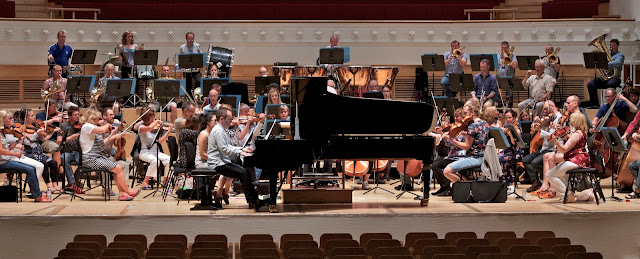 |
| Simon Callaghan, BBC Scottish Symphony Orchestra & Martyn Brabbins recording Roger Sacheverell Coke's piano concertos (Photo Oscar Torres) |
My interest in the music of Roger Sacheverell Coke (1912-72) goes back to 2014 when I acquired the score of his 24 Preludes Op. 33 & 34 and was immediately gripped by the intriguing sound world of this forgotten composer. Siva Oke of SOMM Records shared my enthusiasm and together we produced the world premiere recording of the Preludes, along with Coke’s Theme and 15 Variations in C minor Op. 37. [See Robert's review of the disc]. It was also my pleasure to perform these works in the UK at the Husum Festival of Piano Rarities in Germany. In June 2016 I gave a lecture-recital on Coke at his family home, Brookhill Hall and joined the family in unveiling a blue plaque to commemorate the composer.
Through my early research into Coke I got to know about his piano concertos. These works were vehicles for the young Coke as a virtuoso pianist and he performed them all over the UK, including nationally broadcast concerts with the Bournemouth Municipal Orchestra [forerunner of the Bournemouth Symphony Orchestra]. Despite the warm reception they received the composer destroyed the first two piano concertos. Coke’s own works list of 1959 details four more concertos although sadly the sixth and two of the movements from the fifth are now lost.
 |
| Simon Callaghan, BBC Scottish Symphony Orchestra (Photo Oscar Torres) |
From this score and those held at Chesterfield Library in Derbyshire, the wonderful Edward Taylor and I painstakingly transcribed the music and prepared new performing editions and sets of orchestral parts. Coke’s manuscripts are meticulous and highly detailed. These works clearly meant the world to him, so it was such a pleasure to be able to bring them to life in this way!
In July 2016 I travelled to Glasgow to join Martyn Brabbins and the BBC Scottish Symphony Orchestra to put down the first recording of Coke’s third, fourth and fifth piano concertos. I must say that this orchestra and conductor are really the ‘dream team’ for this kind of project! They are so incredibly open-minded to this unknown music and showed total dedication and enthusiasm for making the best recording possible. I will always look back on those days of making music together with great fondness and I would like to thank them all for joining me in producing a CD we can all be very proud of.
Coke himself would also have been very pleased I think. In 1966 he made an appeal in the Sunday Express, for someone to record his third piano concerto, saying “I’ve thought of having it recorded for some time now. Then two years ago I approached a company who agreed – but unfortunately they went bankrupt…I am prepared to have to pay as I’m not well known enough for them to do it for nothing. I always have to pay for things – probably because I live in a hall.”
 |
| Simon Callaghan, BBC Scottish Symphony Orchestra & Martyn Brabbins (Photo Oscar Torres) |
The third concerto is perhaps the most influenced by Sergei Rachmaninov whom Coke greatly admired and undoubtedly sought to assimilate in his own works. [See Simon's blog for more information on Coke and Rachmaninov]. It is a work firmly based in the Romantic tradition with a virtuosic piano part and a remarkably straight-forward orchestration. Early performances of all the concertos were given at Brookhill Hall with an orchestra of musicians assembled from the local area – possibly not professional musicians – which might explain the need to keep the orchestration simple.
In the three years between the third and fourth concertos, Coke’s mental afflictions worsened and he spent significant spells in mental asylums. I haven’t yet managed to track down a diagnosis but it is almost certain that he suffered from depression and this worsened during these years, also bringing about a complete change in his compositional style. The fourth concerto – while beginning in a similar Romantic vein to the third – goes much further, particularly harmonically and for me recalls the sound world of Alexander Scriabin and Arnold Bax. It is much less constrained by the reins of structure, alternating between episodes of strongly diatonic music and disturbed, mysterious outbursts.
The movement we recorded of the fifth concerto is the only remaining part of the work. Coke’s works list gives the timing as 30 minutes, implying that there were possibly two other movements, but these are now lost. It is also subtitled the ‘Orton’ concerto, although I haven’t been able to find out who or what ‘Orton’ was. For me the work again highlights the two sides of Coke’s personality, beginning with a very serene melody in the unison strings and a nocturne-like opening from the piano, but descending into a much more esoteric sound world at times. This music is the closest we can get to knowing how Coke was feeling at the time of writing it.
I do hope you enjoy our new recording of Coke’s three remaining piano concertos, and I would love to hear your comments! You can find out more and contact me at www.rogersacheverellcoke.com
Simon Callaghan
 |
| Simon Callaghan, BBC Scottish Symphony Orchestra & Martyn Brabbins (Photo BBC Scottish Symphony Orchestra) |
Simon Callaghan is a pianist and Director of Music at Conway Hall in London. He is currently working on his PhD on Roger Sacheverell Coke at the Royal Northern College of Music.
Roger Sacheverell Coke - Piano Concertos Nos. 3, 4, 5 - Simon Callaghan, BBC Scottish Symphony Orchestra, Hyperion Records (Available from Amazon)
Roger Sacheverell Coke -24 Preludes Op.33 & 34, 15 Variations & Finale, SOMM (Available from Amazon)
Fine debut: Sudden light, choral music by David Bednall from Epiphoni Consort
David Bednall choral music; Epiphoni Consort, Tim Reader, Stephen Farr; Delphian
Reviewed by Robert Hugill on Oct 3 2017 Star rating: 4.0
With a number of first recordings, this disc is a fine survey of the lyrical choral music from the contemporary English composer David Bednall
Sudden Light is a collection of the choral music, both sacred and secular, of the British composer David Bednall on the Delphian label. The disc is a debut recording for the Epiphoni Consort, artistic director Tim Reader. The collection has 17 of Bednall's shorter choral pieces, mainly unaccompanied but some with organist Stephen Farr, and the disc opens with Bednall's 40-part motet Lux orta est iusto.Reviewed by Robert Hugill on Oct 3 2017 Star rating: 4.0
With a number of first recordings, this disc is a fine survey of the lyrical choral music from the contemporary English composer David Bednall
Bednall's background is in the Anglican choral tradition, he is currently Organist of the University of Bristol and Sub Organist at Bristol Cathedral. He studied with Naji Hakim and David Briggs, and between 2002 and 2007 was at Wells Cathedral, initially as Sub Organist and then as Assistant Organist.
Lux orta est iusto, which was written to be performed alongside Tallis' Spem in alium, makes a superb opening item with the radiant luminosity of Bednall's writing making a strong impression. Performed by a group of 46 singers, this is a notable achievement from the Epiphoni Consort and throughout the disc their technical command of Bednall's sometimes challenging writing always dazzles.
Friday, 27 October 2017
Looking ahead: 70th birthday concert for Nicola Lefanu
Labels:
preview
The composer Nicola Lefanu is 70 this year (see my interview with her) and there have been a number of celebrations of the event. Odaline de La Martinez and Lontano are giving Nicola Lefanu a 70th birthday present of a concert on Thursday 9 November 2017 at The Warehouse, 13 Theed Street, London SE1 8ST, and will be joined by soprano Raphaela Papadakis and baritone Jeremy Huw Williams. Before the concert there will be a meet the composer event when Jessica Duchen will be talking to Nicola Lefanu.
The concert focuses on Lefanu's music for ensemble and for voice, including three works for singers: The Same Day Dawns, A Penny for a Song and The Swan. The works in the concert span much of Lefanu's career from The Swan which was premiered this year to The Same Day Dawns from 1974. The Swan was premiered in 2017 at the Lower Machen Festival by the baritone Jeremy Huw Williams, who commissioned the work and who will be joining the birthday celebrations to perform it again, thus giving the work its London premiere.
Further information and tickets from EventBrite.
The concert focuses on Lefanu's music for ensemble and for voice, including three works for singers: The Same Day Dawns, A Penny for a Song and The Swan. The works in the concert span much of Lefanu's career from The Swan which was premiered this year to The Same Day Dawns from 1974. The Swan was premiered in 2017 at the Lower Machen Festival by the baritone Jeremy Huw Williams, who commissioned the work and who will be joining the birthday celebrations to perform it again, thus giving the work its London premiere.
Further information and tickets from EventBrite.
This weekend: PanAmericana - A Concert of Musical Border Crossings Through the Americas
A concert on Sunday 29 October 2017 at the Barbican's Milton Court Concert Hall aims to showcase the music of the New World, highlighting the Latin-American links across America and attempting to challenge the growing rhetoric of intolerance towards the Latino community in the USA, by demonstrating the close cultural connections that bind the Americas together, North and South.
Part of the Echoes Festival of Latin Classical Music, PanAmericana features tenor Luis Gomes, the Latin Classical Chamber Orchestra, Duo Diez, Los Angeles Duo and Venezuelan percussionist Wilmer Sifontes, with special guest performances by Talentos Colombian Folk Dance Group. They will be performing a wide range of music from Copland and Bernstein to Villa-Lobos and Chavez, plus some Gerswhin and Piazzolla.
It promises to be a fun evening, and is organised in aid of Latin American Women's Aid (LAWA) - a dedicated BMEled specialist women's organisation which for the past 30 years has worked towards the empowerment of Latin American and other Spanish and Portuguese speaking women and children who are experiencing gender violence (GV).
Further information and tickets from the Barbican website.
Part of the Echoes Festival of Latin Classical Music, PanAmericana features tenor Luis Gomes, the Latin Classical Chamber Orchestra, Duo Diez, Los Angeles Duo and Venezuelan percussionist Wilmer Sifontes, with special guest performances by Talentos Colombian Folk Dance Group. They will be performing a wide range of music from Copland and Bernstein to Villa-Lobos and Chavez, plus some Gerswhin and Piazzolla.
It promises to be a fun evening, and is organised in aid of Latin American Women's Aid (LAWA) - a dedicated BMEled specialist women's organisation which for the past 30 years has worked towards the empowerment of Latin American and other Spanish and Portuguese speaking women and children who are experiencing gender violence (GV).
Further information and tickets from the Barbican website.
Rebecca Evans and Tim Mead in Handel's Rodelinda at ENO
Labels:
ENO,
Handel,
opera review
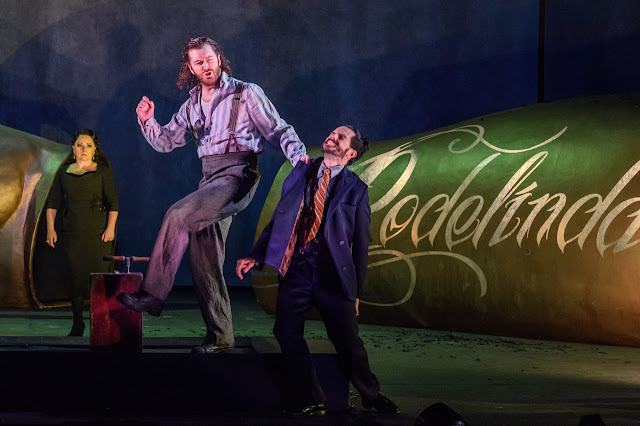 |
| Handel: Rodelinda - Rebecca Evans, Tim Mead, Juan Sancho - English National Opera 2017 (Photo Jane Hobson) |
Reviewed by Robert Hugill on Oct 26 2017 Star rating: 4.0
The production might be designed for those who dislike Handel opera, but the performances are astonishing
 |
| Neal Davies (Photo Jane Hobson) |
The production seems to be substantially unchanged from 2014 (see my original review), except that during Rodelinda and Bertarido's duet which concludes Act Two the scenery now moves in relative silence rather than distracting from the music. Re-reading my original review, I find that my thoughts on this revival pretty much unchanged.
Richard Jones has replaced Handel and Haym's dramaturgy with one of his own, where the rather non-linear emotion-based baroque drama is now taken over by a linear 1950s film noir narrative which resorts to comedy to smooth over any perceived awkwardnesses in the narrative. Handel's drama in his opera seria works well if taken seriously (as James Conway has shown in a number of his productions for English Touring Opera), but Richard Jones has essentially given us a production for those who do not really like baroque opera - funny, hyperactive, restless, with a tendency to pull focus in most of the main arias. And the audience loved it, Jones' Handel clearly speaks to audience goers in the way that a more purist production would seem not to.
What is striking is that within these limitations, Jones and Stirrup achieve such remarkably intense performances from all the cast.
Thursday, 26 October 2017
Revolution!
Labels:
preview
Revolution! uses the real-life involvement in the Russian Revolution of author/journalist Arthur Ransome (best known for Swallows and Amazons) and composer Sergei Rachmaninov as the starting point for a fictionalised account which is the framework for a programme of music by Rachmaninov, Golovanov, Sviridov, Scriabin and Prokofiev performed by the Epiphoni Consort, conductor Tim Reader, and pianist Martin James Bartlett (former BBC Young Musician). The narration will be spoken by Benedict Hastings, and was written by Rufus Stilgoe. The programme is performed on Saturday 28 October 2017 at the church of St James, Sussex Gardens, W2 3UD
As a foreign correspondent Arthur Ransome covered the Russian Revolutions of 1917, and came to sympathise with the Bolshevik cause; he become close to a number of its leaders, including Vladimir Lenin, Leon Trotsky and Karl Radek. He met the woman who would become his second wife, Evgenia Petrovna Shelepina, who at that time worked as Trotsky's personal secretary.
Sergei Rachmaninov was born into the Russian aristocracy and the family had an estate in Novgorod Oblast in north-western Russia. The Revolution of October 1917 marked the end of Russia as Rachmaninov knew it. A member of the Russian bourgeoisie, he did not support Bolshevism, in due course came the humiliation of selling the family estate, and Rachmaninov’s own estate, Ivanovka, was seized by the Leninist regime in 1917. He left Russia in December 1917, ostensibly for a concert tour in Scandinavia and never returned.
Further information from the Epiphoni Consort website.
As a foreign correspondent Arthur Ransome covered the Russian Revolutions of 1917, and came to sympathise with the Bolshevik cause; he become close to a number of its leaders, including Vladimir Lenin, Leon Trotsky and Karl Radek. He met the woman who would become his second wife, Evgenia Petrovna Shelepina, who at that time worked as Trotsky's personal secretary.
Sergei Rachmaninov was born into the Russian aristocracy and the family had an estate in Novgorod Oblast in north-western Russia. The Revolution of October 1917 marked the end of Russia as Rachmaninov knew it. A member of the Russian bourgeoisie, he did not support Bolshevism, in due course came the humiliation of selling the family estate, and Rachmaninov’s own estate, Ivanovka, was seized by the Leninist regime in 1917. He left Russia in December 1917, ostensibly for a concert tour in Scandinavia and never returned.
Further information from the Epiphoni Consort website.
Hot metal & seductive timbres: The Book of Keyboards from Third Coast Percussion
Labels:
cd review
Philippe Manoury Le Livre des Claviers, Métal; Third Coast Percussion; New Focus Recordings
Reviewed by Robert Hugill on Aug 13 2017 Star rating: 4.0
Seductive yet complex sound-worlds for tuned percussion
On this disc from New Focus Recordings, Third Coast Percussion (Gregory Beyer, Owen Clayton Condon, Robert Dillon, Ross Karre, Peter Martin and David Skidmore) address themselves to the challenges of Philippe Manoury's Le Livre des Claviers (The Book of Keyboards) for percussion sextet. The disc also includes Manoury's Métal.
Reviewed by Robert Hugill on Aug 13 2017 Star rating: 4.0
Seductive yet complex sound-worlds for tuned percussion
On this disc from New Focus Recordings, Third Coast Percussion (Gregory Beyer, Owen Clayton Condon, Robert Dillon, Ross Karre, Peter Martin and David Skidmore) address themselves to the challenges of Philippe Manoury's Le Livre des Claviers (The Book of Keyboards) for percussion sextet. The disc also includes Manoury's Métal.
Philippe Manoury (born 1952) studied at the Ecole Normale de Musique de Paris, and the Conservatoire de Paris and joined IRCAM in 1980. His early music was influenced by Pierre Boulez, Karlheinz Stockhausen, and Iannis Xenakis.
Le Livre des Claviers was written in 1987 and consists of six movements for tuned percussion played by six players. The first movements uses marimbas and thai gongs, the second movement is a marimba duo, the third movement uses six sixxen, the fourth is a vibraphone solo, the fifth uses marimbas and thai gongs, the sixth uses six sixxen. Sixxen are microtonal instruments invented by Xennakis and usually home-made (those on the disc are of varying lengths of industrial aluminium U-channel).
The sound world that Manoury gets is very seductive, and for all the use of thai gongs and marimbas in tandem, what strikes you is how even the tone colours are in each movement. This is not percussion music where the composer delights in manic timbral variations, instead Manoury explores his chosen colours and mediums. The music is complex and challenging, and in the case of the large ensemble movements, must require a great deal of co-ordination to cope with Manoury's complex rhythmical structures.
One of the fascinating things about the music is how naturally it all flows, yet it is clear that for a involving six men hitting a variety of objects, there must by a great deal of underlying structure and cohesion. A similar factor comes into the pitches of the sixxen, as these are not specified in the instruments, but so carefully is the work thought through that the pitch development seems natural as well.
Wednesday, 25 October 2017
Glyndebourne on Tour: Brett Dean's Hamlet in strong revival and mesmerising performances
Labels:
Glyndebourne on Tour,
opera review
 |
| Brett Dean: Hamlet - Glyndebourne on Tour - Gavan Ring, Brian Bannatyne Scott, David Butt Philip (Photo Richard Hubert Smith) |
Reviewed by Robert Hugill on Oct 24 2017 Star rating: 4.0
A mesmerising account of the title role is at the centre of this strong revival of Brett Dean's new opera
 |
| William Dazeley, Jeffrey Lloyd-Roberts, Louise Winter (Photo Richard Hubert Smith) |
David Butt Philip is Hamlet (he played Laertes in the Summer), with William Dazeley as Claudius, Jennifer France as Ophelia, Rupert Charlesworth as Laertes, Jeffrey Lloyd-Roberts as Polonius, Gavan Ring as Horatio, Louise Winter as Gertrude, Brian Bannatyne Scott as the Ghost, the Gravedigger and Player 1, Rupert Enticknap as Rosencrantz and James Hall as Guildenstern.
 |
| Jennifer France (Photo Richard Hubert Smith) |
Two elements of the opera stand out, the orchestral writing which is simply brilliant, full of colour and effect whilst leaving room for the voices, and a title role which give great scope for a singing actor. Here, thrillingly delivered by David Butt Philip.
But the sheer inclusivity of the plot is a weakness. With a first act lasting nearly two hours, do we really need so much pompous persiflage from Polonius (Jeffrey Lloyd-Roberts), or do we need the comic counter-tenor twittering from Rosencrantz and Guildenstern (Rupert Enticknap and James Hall), in fact do we need them at all? And the scene with the players seemed self indulgently long. I have to confess that by the end of Act One, I rather agreed with the woman behind me who exclaimed 'thank goodness for that' when the interval appeared. There seemed to be too many moments when Dean and Jocelyn seemed to say to each other, this is a good bit we must include it, rather than asking whether the opera actually needed it.
Music and movement at Conway Hall
Labels:
Conway Hall,
preview,
video
 |
| Music in Motion |
So what is Music in Motion?
These are immersive performances where the performers surround and envelop the audience using movement to dramatise the music. Not dance, choreographed to the music, but the performers themselves moving and creating the drama as part of the musical argument.
For the performances on 28 and 31 October the Gildas Quartet will be joined by the newly-formed Music-in-Motion Ensemble to present a programme which includes Bach's Brandenburg Concerto No 3, Vivaldi's Sinfonia al Santo Sepolcro, Arvo Pärt's Fratres, Janacek's String Quartet No 1 'The Kreutzer Sonata', Purcell's Chacony, and Elgar's Introduction and Allegro.
The audience can sit on chairs or the floor, stand or move around, lie down on the floor (cushions and mats provided). I have seen two Music in Motion performances, and it is a remarkable way to experience the music.
Further details from the London Musical Arts website.
Tuesday, 24 October 2017
Gramophone advertorial
Labels:
cd news
We have some nice advertorial on this week's Gramophone newsletter, for Quickening our disc on Navona Records with my songs performed by Anna Huntley, Rosalind Ventris, Johnny Herford and William Vann.
View the newsletter on-line.
View the newsletter on-line.
Sean Shibe - Dreams and Fancies
Labels:
cd review
Walton, Berkeley, Dowland, Arnold, Britten; Sean Shibe; Delphian
Reviewed by Robert Hugill on Oct 9 2017 Star rating: 4.0
The young Scottish guitarist Sean Shibe in an homage both to Julian Bream and to British 20th century guitar writing
Apart from three John Dowland pieces, all the works on this disc of British guitar music date from the period 1957 to 1971, a period when guitar music underwent something of a resurgence in the UK. All the works on the recording, including the Dowland, were inspired, performed and edited by the guitarist Julian Bream, and Sean Shibe's disc on Delphian is something of an homage. Shibe plays Walton's Five Bagatelles, Lennox Berkeley's Sonatina for Guitar Op.51/2, Malcolm Arnold's Fanasy for Guitar Op.107, Britten's Nocturnal after John Dowland Op.70, and Dowland's Praeludium, Forlorn Hope Fancy and Fantasia.
Reviewed by Robert Hugill on Oct 9 2017 Star rating: 4.0
The young Scottish guitarist Sean Shibe in an homage both to Julian Bream and to British 20th century guitar writing
Apart from three John Dowland pieces, all the works on this disc of British guitar music date from the period 1957 to 1971, a period when guitar music underwent something of a resurgence in the UK. All the works on the recording, including the Dowland, were inspired, performed and edited by the guitarist Julian Bream, and Sean Shibe's disc on Delphian is something of an homage. Shibe plays Walton's Five Bagatelles, Lennox Berkeley's Sonatina for Guitar Op.51/2, Malcolm Arnold's Fanasy for Guitar Op.107, Britten's Nocturnal after John Dowland Op.70, and Dowland's Praeludium, Forlorn Hope Fancy and Fantasia.
Walton's Five Bagatelles were written in 1971 as present for Malcolm Arnold's fiftieth birthday. Walton was not stranger to the guitar, he had written the song cycle Anon in Love for Peter Pears and Julian Bream, but a solo work for Bream took longer as Walton was going through a crisis of confidence. A sequence of delightful miniatures, they are superb and characterful late Walton and a little gem of the guitar repertoire, though occasionally you feel that Walton has been listening to rather too many Segovia records.
As the CD booklet article by Lucy Walker puts it, apart from Britten 'the other composers represented here, while retaining their English styles, borrow here and there from the guitar's Spanish heritage; if they occasionally teeter towards pastiche, it is at the same time held at a kind of quizzical remove within their sharper-edged twentieth-century British idiom'. It is this balance which makes the disc such fascinating listening, thanks to Bream's advocacy you have British composers exploring an instrument which was generally seen as idiomatically Spanish.
Remarkably prescient: Menotti's The Consul revived at Guildhall School
Gian-Carlo Menotti's operas seem to be starting to make something of a comeback, having rather fallen out of favour. Whilst there have been recent performances from fringe opera companies, it is heartening to see that Guildhall School of Music and Drama is presenting Menotti's first full-length opera, The Consul at the Silk Street Theatre on 30 October, 1,3 & 6 November 2017, in a production directed by Stephen Medcalf and conducted by Timothy Redmond.
Premiered in 1950 to his own libretto, The Consul was very much the work which launched his career and it won him a Pullitzer Prize. The work was premiered in Philadelphia and then opened on Broadway where it ran for nearly eight months.
A three-act tragedy with a plot which is remarkably prescient given today's climate, the work deals with Magda Sorel whose husband is a dissident in an unnamed country and who struggles to get a visa from the Consul in order to be able to leave and join her husband. The role of Magda was created by the soprano Patricia Neway, who performed the role extensively; whilst on Broadway she alternated in the role with Yul Brynner's sister. Later on in her career, Neway would go on to create the role of the Mother Abbess in Rogers and Hammerstein's Sound of Music. You can see an excerpt from Neway's performance as Magda in the video below, and a televised performance of The Consul with Neway as Magda dating from 1960 is available on DVD.
Though Menotti wrote operas right up until the 1990s, it is his works from the 1940s and 1950s which seem to have the greatest potential to endure. The one-act operas The Medium (1946) and The Telephone (1947) have developed something of a life in contemporary opera theatre, and of course Amahl and the Night Visitors (1951) has remained something of a perennial.
Full details from the Barbican website.
Premiered in 1950 to his own libretto, The Consul was very much the work which launched his career and it won him a Pullitzer Prize. The work was premiered in Philadelphia and then opened on Broadway where it ran for nearly eight months.
A three-act tragedy with a plot which is remarkably prescient given today's climate, the work deals with Magda Sorel whose husband is a dissident in an unnamed country and who struggles to get a visa from the Consul in order to be able to leave and join her husband. The role of Magda was created by the soprano Patricia Neway, who performed the role extensively; whilst on Broadway she alternated in the role with Yul Brynner's sister. Later on in her career, Neway would go on to create the role of the Mother Abbess in Rogers and Hammerstein's Sound of Music. You can see an excerpt from Neway's performance as Magda in the video below, and a televised performance of The Consul with Neway as Magda dating from 1960 is available on DVD.
Though Menotti wrote operas right up until the 1990s, it is his works from the 1940s and 1950s which seem to have the greatest potential to endure. The one-act operas The Medium (1946) and The Telephone (1947) have developed something of a life in contemporary opera theatre, and of course Amahl and the Night Visitors (1951) has remained something of a perennial.
Full details from the Barbican website.
Sunday, 22 October 2017
Opera North's Little Greats: Cav & Pag
Labels:
Opera North,
opera review
Leoncavallo Pagliacci, Mascagni Cavalleria Rusticana; Richard Burkhard, Peter Auty, Elin Pritchard, Jonathan Stoughton, Giselle Allen, Rosalind Plowright, Phillip Rhodes, Katie Bray, dir: Charles Edwards & Karoline Sofulak, cond; Tobias Ringborg; Opera North at the Grand Theatre, Leeds
Reviewed by Robert Hugill on Oct 21 2017 Star rating: 4.5
The classic verismo pairing, in two strikingly updated settings
For the final double bill of Opera North's The Little Greats season at the Grand Theatre, Leeds we caught Cav & Pag or rather Pag & Cav, Leoncavallo's Pagliacci and Mascagni's Cavalleria Rusticana on Saturday 21 October 2017.
Leoncavallo's Pagliacci was directed and designed by Charles Edwards, conducted by Tobias Ringborg, with Richard Burkhard as Tonio, Peter Auty as Canio, Joseph Shovelton as Peppe, Elin Pritchard as Nedda, Phillip Rhodes as Silvio.
Mascagni's Cavalleria Rusticana was directed by Karolina Sofulak with set designs by Charles Edwards and costumes by Gabrielle Dalton, conducted by Tobias Ringborg, with Jonathan Stoughton as Turiddu, Giselle Allen as Santuzza, Rosalind Plowright as Mamma Lucia, Phillip Rhodes as Alfio and Katie Bray as Lola.
Reviewed by Robert Hugill on Oct 21 2017 Star rating: 4.5
The classic verismo pairing, in two strikingly updated settings
 |
| Leoncavallo’s Pagliacci, Peter Auty as Canio, Elin Pritchard as Nedda and members of the Chorus of Opera North (Photo Tristram Kenton) |
Leoncavallo's Pagliacci was directed and designed by Charles Edwards, conducted by Tobias Ringborg, with Richard Burkhard as Tonio, Peter Auty as Canio, Joseph Shovelton as Peppe, Elin Pritchard as Nedda, Phillip Rhodes as Silvio.
Mascagni's Cavalleria Rusticana was directed by Karolina Sofulak with set designs by Charles Edwards and costumes by Gabrielle Dalton, conducted by Tobias Ringborg, with Jonathan Stoughton as Turiddu, Giselle Allen as Santuzza, Rosalind Plowright as Mamma Lucia, Phillip Rhodes as Alfio and Katie Bray as Lola.
Charles Edwards had designed the sets for all six operas and here he directed Pagliacci and he drew remarkably powerful performances from his cast, and the climax was truly shattering. The problem, for me, was that Edwards had chosen not only to update the opera to the present, but to set it in a rehearsal studio. Pagliacci is one of those operas which rather resists contemporary stagings (Damiano Michieletto's 1980s Sicily at Covent Garden is the closest you get).
Opera North's Little Greats: Bernstein, Gilbert and Sullivan
Labels:
Opera North,
opera review
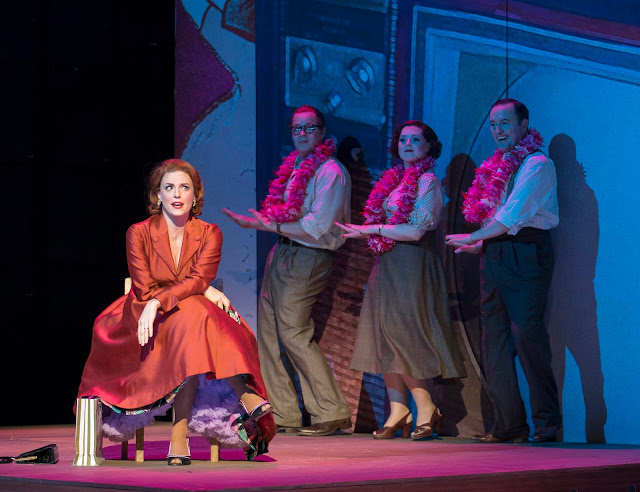 |
| Opera North’s production of Bernstein’s Trouble in Tahiti, Autumn 2017 Wallis Giunta as Dinah with Nicholas Butterfield, Fflur Wyn and Joseph Shovelton as the Trio (Photo Alastair Muir) |
Reviewed by Robert Hugill on Oct 21 2017 Star rating: 4.0
Light but not negligible; little gems by Bernstein and by Gilbert & Sullivan
 |
| Gilbert & Sullivan’s Trial by Jury, Amy Freston as The Plaintiff and Jeremy Peaker as The Learned Judge (Photo Robert Workman) |
Leonard Bernstein's Trouble in Tahiti was directed by Matthew Eberhardt and conducted by Tobias Ringborg, with Quirijn de Lang as Sam, Wallis Giunta as Dinah, Fflur Wyn, Joseph Shovelton and Nicholas Butterfield as the jazz trio, and Charlie Southby in the non-speaking role of Junior. Set design by Charles Edwards, costumes by Hannah Clark
Gilbert & Sullivan's Trial by jury was directed by John Savournin and conducted by Oliver Rundell with Richard Mosley-Evans as the Usher, Nicholas Watts as the Defendant (Edwin), Jeremy Peaker as the Learned Judge, Claire Pascoe as the Counsel for the Plaintiff, and Amy Freston as the Plaintiff (Angelina). Set design by Charles Edwards, costumes by Gabrielle Dalton. This was very much a showcase for the Opera North chorus, all the soloists are chorus members whilst the conductor, Oliver Rundell, is the chorus master.
Bernstein's Trouble in Tahiti dates from 1952, a fertile period for Bernstein with Wonderful Town (1953), Candide (1956) and West Side Story (1957). Notably, Trouble in Tahiti is opera (virtually sung through) not musical theatre, and Bernstein would not return to this form until the sequel, A Quiet Place in 1983.
Opera North's Little Greats: Janacek and Ravel
Labels:
Opera North,
opera review
 |
| Opera North’s production of Ravel’s L'enfant et les sortilèges, Autumn 2017 John Graham-Hall as Tea Pot, Ann Taylor as Chinese Cup, Wallis Giunta as the Child (Photo Tristram Kenton) |
Reviewed by Robert Hugill on Oct 20 2017 Star rating: 4.5
The first of three double bills, Janacek's rarely performed and musically thrilling opera alongside an imaginative rendering of Ravel's masterpiece
With The Little Greats season Opera North is revisiting the imaginative idea of presenting a programme of one-act operas which they first did with Eight Little Greats in 2004. This time six operas were presented in Leeds in flexible programmes, which tour in fixed double bills, with operas by Janacek, Ravel, Bernstein, Gilbert & Sullivan, Leoncavallo and Mascagni.
For the weekend of 20-21 October 2017, we took the opportunity to catch all six operas performed over two days at the Grand Theatre, Leeds. On Friday 20 October we caught Janacek's Osud and Ravel's L'enfant et les sortileges, both directed by Annabel Arden and conducted by Martin Andre, sets by Charles Edwards and costumes by Hannah Clark.
Janacek's Osud featured John Graham Hall as Zivny, Giselle Allen as Mila, Rosalind Plowright as Mila's mother, Peter Auty as Dr Suda, Richard Burkhard as Konecny, Ann Taylor as Miss Stuhla, Bryn Mashburn or Rafi Sherman as Doubek as a boy, and Warren Gillespie as Doubek as an adult.
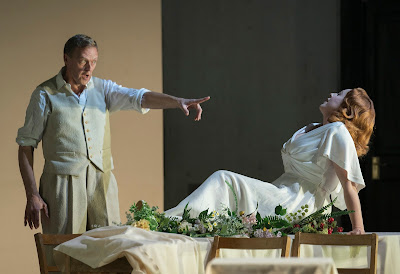 |
| Janáček’s Osud, John Graham-Hall as Živný, Giselle Allen as Míla (Photo Alastair Muir) |
Janacek's Osud comes between the premiere of Jenufa in Brno in 1904 and the opera's first Prague performance in 1916, so Osud is hardly an early work but it is highly experimental and strangely uneven. Based on a real life incident it is about a composer, Zivny (John Graham-Hall) who is writing an opera about an incident in his own life, and Osud is as much about Zivny, his opera, and the idea of opera, as about relationships between the characters. In fact, Osud's leading lady, Mila (Giselle Allen) dies at the end of Act Two, leaving the final act to Zivny and his opera. The style is very much the collage technique that Janacek would used in operas like From the house of the dead. The result is very filmic and though Osud runs headlong it never quite coalesces.
Subscribe to:
Comments (Atom)
Popular Posts this month
-
Having recorded a disc of motets by Francois Couperin (see my review ), Edward Higginbottom and the choir of New College Oxford have turne...
-
Grieg: Lyric Pieces, Op. 71 , Moods, Op. 73, Peer Gynt Suite, Op. 46 , transcriptions of Songs, Op. 41 - Alexander Ullmann - Rubicon Cla...
-
Carl Heinrich Graun Carl Heinrich Graun: opera arias; Valer Sabadus, {oh!} Orkiestra, Martyna Pastuszka; Bayreuth Baroque Opera Festival at ...
-
Christopher Gray and the Choir of St John's College, Cambridge The Advent Carol Service: Judith Weir, Laura Sheils, Paul Manz, Mendelss...
-
Handel: Ariodante - Royal Opera House (Photo: Bill Knight/RBO) Handel's Ariodante; Jacquelyn Stucker, Emily D'Angelo, Christophe D...
-
Verdi: Macbeth - Alexey Gusev, Mari Wyn Williams - Chelsea Opera Group (Photo: Matthew Johnson) Verdi: Macbeth (1865); Alexey Gusev, Mari ...
-
Weber: Der Freischütz - Theatre de Champs Elysees - Photo Julien Benhamou Carl Maria von Weber Der Freischütz ; Stanislas de Barbeyra...
-
Gimnazija Kranj Symphony Orchestra I get all sorts of mail, people sending my information on concerts and recordings. Everything gets gl...
-
Handel: Partenope - English National Opera (Photo: Lloyd Winters) Handel: Partenope ; Nardus Williams, Hugh Cutting, Ru Charlesworth, Jake ...
-
Andrea Farri at Abbey Road Studios The Italian classical music and film composer Andrea Farri , has been announced as the Musical Director f...






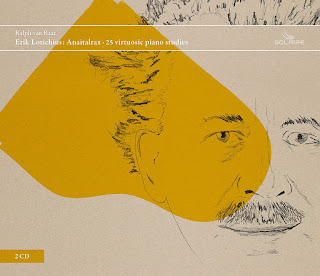

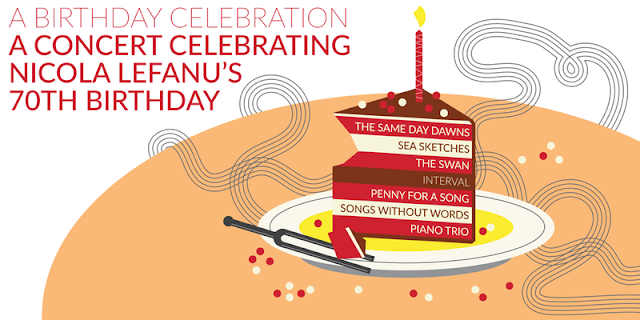


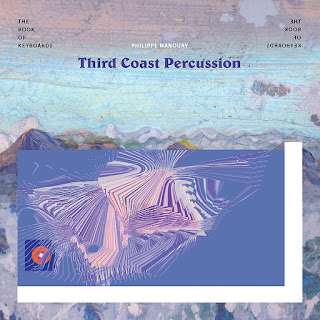
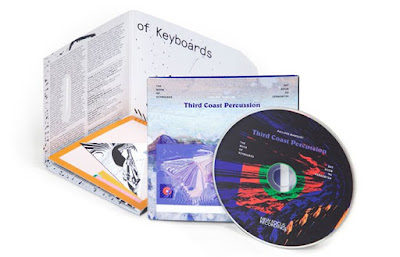



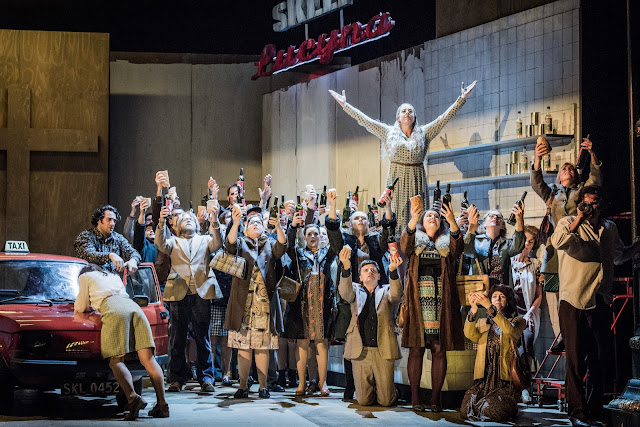



.webp)




.jpg)
